 Applying for jobs can be exciting and nerve-wracking. You revise your resume until it is in top form, hoping your professional skills are strong enough about to be considered for the position. When a company contacts you to schedule a formal interview, gushing about how well qualified you are, they suggest that the job is essentially yours. It seems like everything is going great, right up until you inform the hiring manager that you are deaf and will need a sign language interpreter for the interview. “Oh, we will have to get back to you about that,” they say. But they almost never do.
Applying for jobs can be exciting and nerve-wracking. You revise your resume until it is in top form, hoping your professional skills are strong enough about to be considered for the position. When a company contacts you to schedule a formal interview, gushing about how well qualified you are, they suggest that the job is essentially yours. It seems like everything is going great, right up until you inform the hiring manager that you are deaf and will need a sign language interpreter for the interview. “Oh, we will have to get back to you about that,” they say. But they almost never do.
It is well known in the Deaf community that a persons’ best chance of being considered for a job to bring their own interpreter for the interview– even though the ADA legally requires hiring entities to cover this cost. Sadly, instead of organizations accommodating the needs of a diverse workforce, deaf individuals have to accommodate for discriminatory hiring practices. And if they do get hired, after paying for their own interpreter, deaf individuals often continue to encounter both overt and subtle workplace discrimination.
 Deaf people have to constantly push back against a society that was not designed for them to succeed. As an interpreter and CODA (Child of Deaf Adults), it can be hard to witness the structural injustice faced by my deaf colleagues and family members on a daily basis. I was recently on an assignment where the deaf consumer shared with me their frustration that the only times they were ever provided an interpreter was when it was absolutely necessary to moving forward on a project. This deaf individual works for a federal agency– an organization with plenty of funding to properly support their employees– yet has to work harder than any of their coworkers just to participate in the workplace.
Deaf people have to constantly push back against a society that was not designed for them to succeed. As an interpreter and CODA (Child of Deaf Adults), it can be hard to witness the structural injustice faced by my deaf colleagues and family members on a daily basis. I was recently on an assignment where the deaf consumer shared with me their frustration that the only times they were ever provided an interpreter was when it was absolutely necessary to moving forward on a project. This deaf individual works for a federal agency– an organization with plenty of funding to properly support their employees– yet has to work harder than any of their coworkers just to participate in the workplace.
Almost everyone has been in a work situation, at one time or another, where you were not provided the appropriate resources for the job. When you don’t have the tools you need, it can be difficult or even impossible to complete a task. This is discouraging and, if this pattern continues over a period of time, employees begin to feel disengaged from the organization. Employees perform best and are able to excel when they feel supported. The needs of deaf employees are a little different, and can vary from one situation to the next, but accommodations are generally not hard to make. Forming a positive relationship with deaf employees starts, just like any relationship, with a sense of respect.
 Respect comes from understanding, from communicating, and from making a person feel appreciated. Before you even interview a deaf job candidate, do a little research on deaf communication and Deaf culture. We live in the age of the internet, where there is a wealth of information available; it only takes a short amount of time to give yourself a basic education. Nobody expects you to be a scholar on deafness– simply that you look beyond the stereotypes and approach the topic with an open mind. Learn that the deaf experience is different for everyone, about the different methods deaf individuals use to navigate the hearing world , and how to provide accommodations for equal access in the workplace.
Respect comes from understanding, from communicating, and from making a person feel appreciated. Before you even interview a deaf job candidate, do a little research on deaf communication and Deaf culture. We live in the age of the internet, where there is a wealth of information available; it only takes a short amount of time to give yourself a basic education. Nobody expects you to be a scholar on deafness– simply that you look beyond the stereotypes and approach the topic with an open mind. Learn that the deaf experience is different for everyone, about the different methods deaf individuals use to navigate the hearing world , and how to provide accommodations for equal access in the workplace.
Besides possessing the general skills required for the job, deaf employees can bring a unique perspective to your organization. Unfortunately, if deaf people do not feel like they are truly part of the team, they are unlikely to open up and contribute. If deaf employees are not able to participate equally in training seminars, team building exercises, meetings, or day-to-day office activities, they will probably not feel connected to the success of the organization. The best way to include deaf individuals in the workplace is to simply ask them what accommodations would make them most comfortable in each situation. Accommodations might range from from creating closed captioned training videos, to implementing Video Relay Service, to acquiring sign language interpreters. Reasonable accommodations will vary from person to person, but they are generally neither inconvenient nor cost prohibitive to provide. In the end, the entire organization benefits when they can get the most out of their employees.
 In our current shifting social climate, organizations of all sizes are looking for ways to create workplace diversity. Diversity initiatives might be good intentioned, but many times they are poorly implemented, leaving these minority employees to sink or swim. Supporting deaf staff on an ongoing basis is like providing hardware and software updates, it is like making sure the break room has coffee– it is a crucial part of creating a healthy and functional working environment. It is simple, and the right thing to do.
In our current shifting social climate, organizations of all sizes are looking for ways to create workplace diversity. Diversity initiatives might be good intentioned, but many times they are poorly implemented, leaving these minority employees to sink or swim. Supporting deaf staff on an ongoing basis is like providing hardware and software updates, it is like making sure the break room has coffee– it is a crucial part of creating a healthy and functional working environment. It is simple, and the right thing to do.
Hiring and Supporting Deaf Employees
LC Interpreting Services (now known as SignNexus) is pleased to offer sign language interpreting services and cultural competency training for businesses and organizations. Provide your deaf employees with the professional support they need; and learn how to truly benefit from having deaf employees join the team.






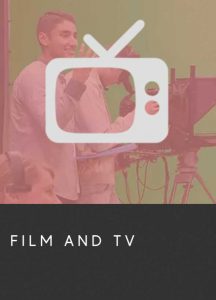






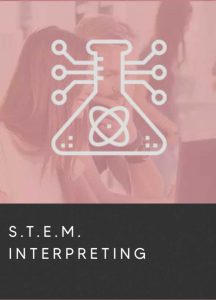
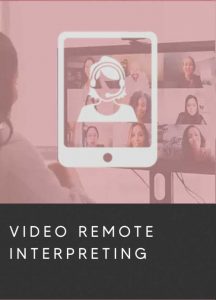
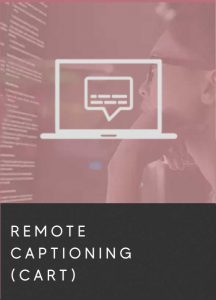

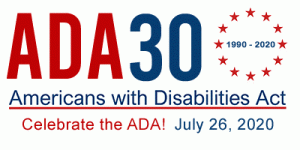
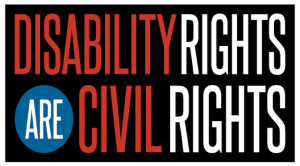 Since 1990, groups and individuals within the Disability Community have worked, advocated, litigated, protested, and lobbied to make incredible advancements toward equal access with the support of the ADA. As time goes on, we are beginning to see inclusive elements being built right into organizations and institutions – from
Since 1990, groups and individuals within the Disability Community have worked, advocated, litigated, protested, and lobbied to make incredible advancements toward equal access with the support of the ADA. As time goes on, we are beginning to see inclusive elements being built right into organizations and institutions – from 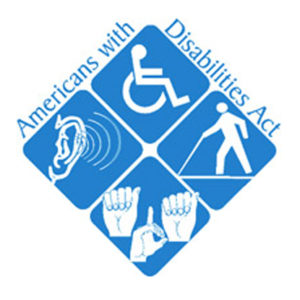 July 26 marks the anniversary of the Americans with Disabilities Act: a set of laws established to help people with disabilities gain access to society that was simply not designed for them. Since 1990, this landmark piece of legislation has improved the lives of millions of Americans by providing clarification regarding their rights to access— whether that means built-in wheelchair ramps, requesting ASL interpreters, or allowing service animals into buildings— and offering legal recourse for individuals whose rights are violated.
July 26 marks the anniversary of the Americans with Disabilities Act: a set of laws established to help people with disabilities gain access to society that was simply not designed for them. Since 1990, this landmark piece of legislation has improved the lives of millions of Americans by providing clarification regarding their rights to access— whether that means built-in wheelchair ramps, requesting ASL interpreters, or allowing service animals into buildings— and offering legal recourse for individuals whose rights are violated.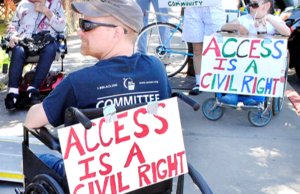 Without the hard work of determined disability rights activists, the ADA would never have been passed; and without ongoing advocacy efforts, little real change might have come from the legislation. People who do not need to reference the ADA on a regular basis to get their basic needs met are frequently unaware of their obligation to ensure equal access to their establishment / service / business. In the years since the ADA became law, people with disabilities have had to consistently perform the labor of educating people about their disabilities and what it means to be disabled in a world that favors able-bodied individuals. They must also be willing to challenge organizations to go beyond bare minimum compliance, which can sometimes mean taking on large institutions in a public way.
Without the hard work of determined disability rights activists, the ADA would never have been passed; and without ongoing advocacy efforts, little real change might have come from the legislation. People who do not need to reference the ADA on a regular basis to get their basic needs met are frequently unaware of their obligation to ensure equal access to their establishment / service / business. In the years since the ADA became law, people with disabilities have had to consistently perform the labor of educating people about their disabilities and what it means to be disabled in a world that favors able-bodied individuals. They must also be willing to challenge organizations to go beyond bare minimum compliance, which can sometimes mean taking on large institutions in a public way.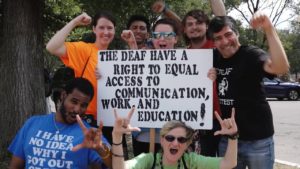
 Each time a person takes it upon themselves to challenge the institution that oppresses them, they remove a barrier for the next person— no matter how big or small. This incremental progress adds up over time. If your rights are violated, pursue further action. If your needs are not adequately met, provide feedback and pursue further action. The advocacy and awareness that each person spreads works toward creating a more educated society with advanced views of disability. Pushing back is important work!
Each time a person takes it upon themselves to challenge the institution that oppresses them, they remove a barrier for the next person— no matter how big or small. This incremental progress adds up over time. If your rights are violated, pursue further action. If your needs are not adequately met, provide feedback and pursue further action. The advocacy and awareness that each person spreads works toward creating a more educated society with advanced views of disability. Pushing back is important work!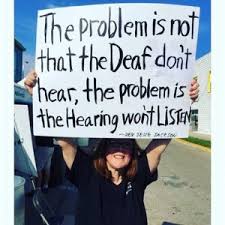 But what about allies? How can people who are not deaf or disabled help, without their position of able-bodied privilege resulting in further oppression? Where to get started?
But what about allies? How can people who are not deaf or disabled help, without their position of able-bodied privilege resulting in further oppression? Where to get started?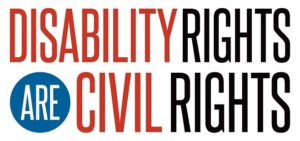 The ADA in action is more of a tool for people with disabilities than any kind of guarantee. This set of legislation only works when it is enforced, and it is up to each member of our society to help enforce it.
The ADA in action is more of a tool for people with disabilities than any kind of guarantee. This set of legislation only works when it is enforced, and it is up to each member of our society to help enforce it. Applying for jobs can be exciting and nerve-wracking. You revise your resume until it is in top form, hoping your professional skills are strong enough about to be considered for the position. When a company contacts you to schedule a formal interview, gushing about how well qualified you are, they suggest that the job is essentially yours. It seems like everything is going great, right up until you inform the hiring manager that you are deaf and will need a sign language interpreter for the interview. “Oh, we will have to get back to you about that,” they say. But they almost never do.
Applying for jobs can be exciting and nerve-wracking. You revise your resume until it is in top form, hoping your professional skills are strong enough about to be considered for the position. When a company contacts you to schedule a formal interview, gushing about how well qualified you are, they suggest that the job is essentially yours. It seems like everything is going great, right up until you inform the hiring manager that you are deaf and will need a sign language interpreter for the interview. “Oh, we will have to get back to you about that,” they say. But they almost never do. Deaf people have to constantly push back against a society that was not designed for them to succeed. As an interpreter and CODA (Child of Deaf Adults), it can be hard to witness the structural injustice faced by my deaf colleagues and family members on a daily basis. I was recently on an assignment where the deaf consumer shared with me their frustration that the only times they were ever provided an interpreter was when it was absolutely necessary to moving forward on a project. This deaf individual works for a federal agency– an organization with plenty of funding to properly support their employees– yet has to work harder than any of their coworkers just to participate in the workplace.
Deaf people have to constantly push back against a society that was not designed for them to succeed. As an interpreter and CODA (Child of Deaf Adults), it can be hard to witness the structural injustice faced by my deaf colleagues and family members on a daily basis. I was recently on an assignment where the deaf consumer shared with me their frustration that the only times they were ever provided an interpreter was when it was absolutely necessary to moving forward on a project. This deaf individual works for a federal agency– an organization with plenty of funding to properly support their employees– yet has to work harder than any of their coworkers just to participate in the workplace. Respect comes from understanding, from communicating, and from making a person feel appreciated. Before you even interview a deaf job candidate, do a little research on
Respect comes from understanding, from communicating, and from making a person feel appreciated. Before you even interview a deaf job candidate, do a little research on In our current shifting social climate, organizations of all sizes are looking for ways to create workplace diversity. Diversity initiatives might be good intentioned, but many times they are poorly implemented, leaving these minority employees to sink or swim. Supporting deaf staff on an ongoing basis is like providing hardware and software updates, it is like making sure the break room has coffee– it is a crucial part of creating a healthy and functional working environment. It is simple, and the right thing to do.
In our current shifting social climate, organizations of all sizes are looking for ways to create workplace diversity. Diversity initiatives might be good intentioned, but many times they are poorly implemented, leaving these minority employees to sink or swim. Supporting deaf staff on an ongoing basis is like providing hardware and software updates, it is like making sure the break room has coffee– it is a crucial part of creating a healthy and functional working environment. It is simple, and the right thing to do.





